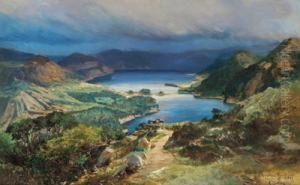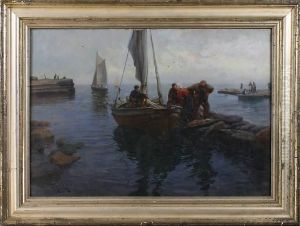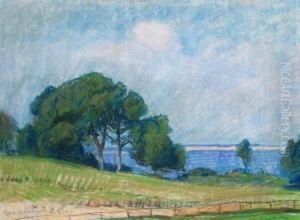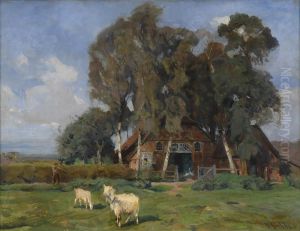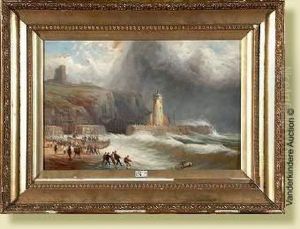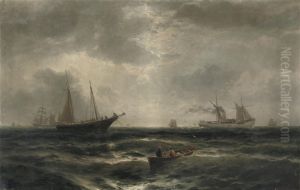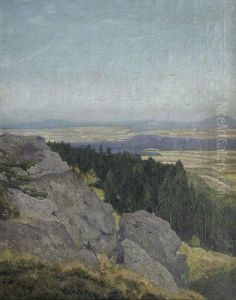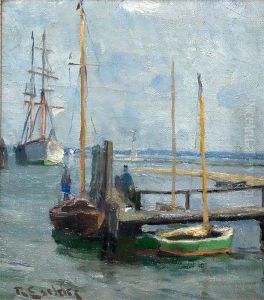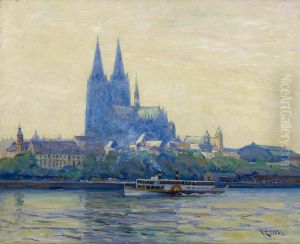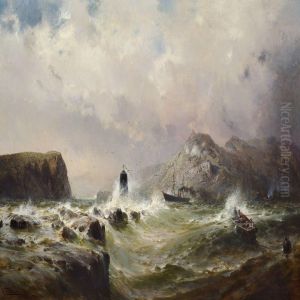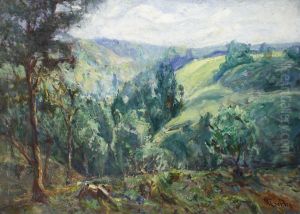Hermann Richard Eschke Paintings
Hermann Richard Eschke was a German painter known for his marine and landscape paintings. Born on February 23, 1823, in Königsberg, Prussia (now Kaliningrad, Russia), Eschke displayed an early talent for art. He pursued his passion for painting by studying at the Königsberg Art Academy. Later, he moved to Düsseldorf, which was, at the time, a center for art and culture in Germany, and continued his studies at the Düsseldorf Academy of Arts under the guidance of the Norwegian painter Hans Gude, who was renowned for his landscape paintings.
Eschke's work was greatly influenced by the Düsseldorf school of painting, which emphasized detailed and finely crafted landscapes and seascapes. He became particularly noted for his realistic depiction of water and the effects of light on the sea. His marine paintings often featured scenes of ships and stormy seas, capturing the drama and power of nature.
Throughout his career, Eschke exhibited his work at various art exhibitions and was recognized for his artistic contributions. His paintings were sought after by art collectors, and he gained a reputation as a skilled marine artist. Despite the popularity of his seascapes, Eschke also produced a number of landscapes and genre scenes, showcasing his versatility as an artist.
Eschke's legacy lives on through his paintings, which can be found in art galleries and private collections around the world. He died on December 29, 1900, in Berlin, and is remembered as a master of marine art from the 19th century.
